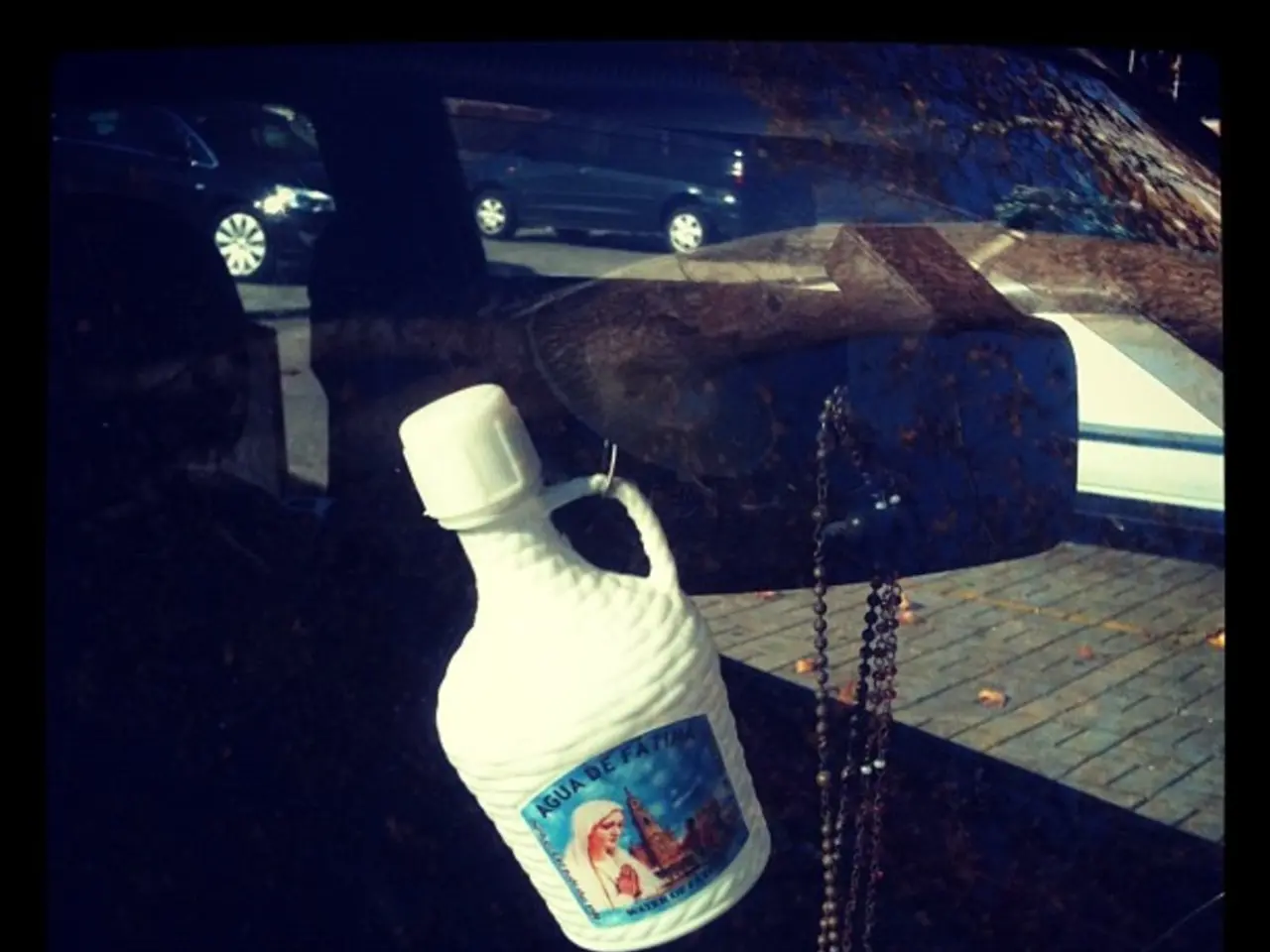Government disputes erroneous claims about disadvantages of ethanol blending
E20 petrol, a blend of 20% ethanol and 80% petrol, has been adopted nationwide in India, aiming to strengthen the country's energy security and reduce carbon emissions. However, concerns about its impact on older vehicles have been raised.
In a phased and well-communicated approach, the Ministry of Petroleum & Natural Gas (MoPNG) has emphasised that the transition to E20 petrol benefits both the environment and the economy. The MoPNG states that E20 blending significantly strengthens India's energy security by reducing dependence on crude oil imports and contributes to climate change goals by reducing carbon dioxide emissions by 700 lakh tonnes.
Regarding the performance of older vehicles, studies and government-backed tests by Indian research bodies such as the Automotive Research Association of India (ARAI), Indian Institute of Petroleum (IIP), and Indian Oil Corporation (R&D) have found no significant differences in power, torque, or engine performance in older vehicles running on E20 compared to regular petrol.
While a marginal drop in fuel efficiency due to E20 is observed, this is primarily due to ethanol’s lower energy density compared to pure petrol. Vehicles originally designed for E10 but running on E20 may see only a 1-2% reduction, but older or non-calibrated vehicles can experience a 3-6% drop, with some estimates suggesting up to 5-7% or occasionally higher in real-world conditions.
Concerns about corrosion caused by ethanol are addressed by government assurances that E20 fuel meets Indian BIS standards, including corrosion inhibitors and compatible material requirements. Tests on legacy vehicles have not shown significant material corrosion or abnormal wear-and-tear. However, minor replacements such as rubber gaskets and other fuel system parts may be needed after 20,000-30,000 km in some older vehicles, a routine and low-cost maintenance task during servicing.
The Indian government has tried to alleviate motorists' fears about using E20 petrol in older vehicles. E20 petrol has passed hot and cold startability tests without any engine damage. The MoPNG claims that international studies on the effect of using E20 petrol on older vehicles show no significant differences in power and torque generated, and fuel consumption.
In summary, while older vehicles might experience a slight reduction in fuel efficiency and may require some minor component replacements, E20 petrol does not cause significant engine damage, performance loss, or material corrosion according to government and scientific assessments. Proper engine tuning and use of E20-compatible parts can further mitigate these impacts.
Adopting E20 petrol in home-and-garden equipment like lawnmowers and generators could be an effective way to incorporate this cleaner fuel into people's lifestyle, contributing to the country's energy security and emissions reduction targets. Furthermore, the government's assurance that E20 fuel meets Indian BIS standards ensures that this fuel can be used without harming the engine performance or causing corrosion in older cars, making it a suitable option for many vehicle types.




